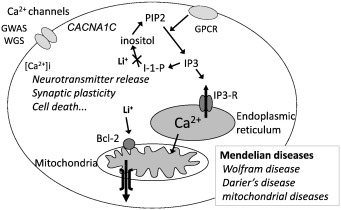frozenborderline
Senior Member
- Messages
- 4,405
I'm not sure what peat had (I think it sounds like somewhat severe thyroid dysfunction) but despite finding the theory interesting, Im somehwat interested b/c I know of a few people with severe, disabling fatigue that benefited from his work. It's tricky to know if they had ME/CFS because they didn't go to specialists and were in europe in a country that has BPS model so I doubt they would have gotten good treatment even if going to a doctor.Ray Peat is an interesting guy but to my knowledge he did not have ME/CFS or POTS so his experience would not be relevant to my own. This is why I have nothing to debate with him - he and I do not have the same condition. I suspect that he was probably treating himself for depression with high doses of thyroid. People with depression generally tend to respond well to high doses of T3 while people while people with severe CFS do not. There is a blog from a guy in Australia who went from having moderate CFS to not being able to leave his bed for the last ten years after taking T3 for a couple weeks.
It's also my impression that Ray Peat no longer believes most of what he said a long time ago, which is why he removed all his books and has tried to distance himself from the disciples who developed protocols based on his ideas since he's against any "protocols" and mainly tried to teach people to make intuitive connections about their bodies, his "perceive. think. act" mantra.
There are people that are diagnosed with CFS on the ray peat forum (which is mostly a cesspool), some of whom have made full recoveries apparently through various medications and food, and some who havent
But I agree in prioritizing anecdotal evidence of people specifically diagnosed with CFS, even tho I think broader metabolic dysfunction may underlie several disease states. This is why, if doing the dosing protocol that peat/roddy recommends doesn't work, I'll add lithium, and also try the blanchard protocol next.
As for the bolded part, I'm really not sure. I honestly thought his books just went out of print because they didn't sell much. I think there are a couple of things that he may have changed based on experiment and experience.
The one on soviet neuroscience is really good read from a philosophy of science perspective and doesn't really have much in the way of practical recommendations but is cool if one is interested in exploring the differing epistemologies of two differing kinds of "materialism".
Imo I just find the stuff that gets labelled "vitalism" very interesting. It's not really vitalism in the crude sense, but I feel like if one could really understand life or living systems as a whole that it could yield relevant results for many disease states. I do kind of buy the idea that aging and fatigue and several sickness states share physiochemical properties... i think Naviaux does too

